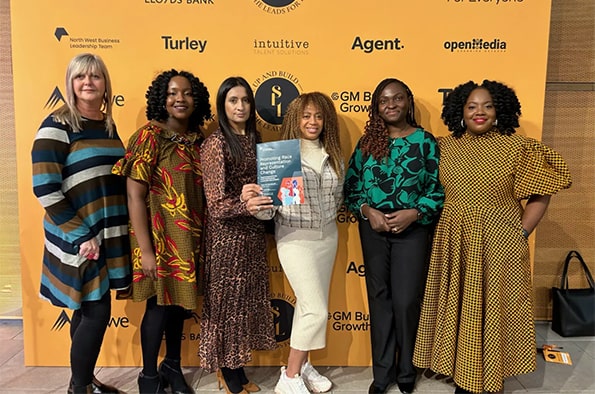New report helps businesses tackle race representation

A new report by Management School Professor, Lilian Otaye-Ebede, aims to help business tackle race representation within their organisations.
A new report by Management School Professor, Lilian Otaye-Ebede, aims to help business tackle race representation within their organisations.
Commissioned by the North West Business Leadership Team (NWBLT) and presented during the latest She Leads For Legacy Conference, the ‘Promoting Race Representation and Culture Change’ report has been designed as an effective equality, diversity and inclusion resource for businesses in the region.
While progress has been made in this area by many of the region’s businesses, the findings show that there is still much more to do to improve equality, particularly within leadership roles.
This is consistent with ONS figures stating that in the UK just 4.6% of UK leadership roles are held by people of black, Asian or minority ethnic (BAME) backgrounds.
The underlying research conducted by Professor Lilian Otaye-Ebede and Dr Samah Shaffakat, includes best practice examples of race-related equality diversity and inclusion (EDI) from large to small and medium sized organisations.
Businesses can find effective initiatives from companies, such as PWC, Lloyds and IBM, in five key areas: Staffing and Governance, Recruitment and Selection, Training and Education, Progression and Promotion, and Race-Inclusive Culture and Climate.
The goal is to guide, inspire and inform local businesses on how to grow and develop long term strategies to increase racial representation across all levels and to drive race-related EDI.
Professor Lilian Otaye-Ebede said: “Recent figures show that very little progress has been made in changing the racial representation of the UK workforce across all levels, but predominantly within senior leadership. More worrying is the heart-breaking experiences of racial discrimination reported by individuals and how these have negatively impacted on their sense of selves, progression, retention, health and wellbeing.”
The project was driven by NWBLT’s Diversity Drivers co-chair, Sharon Amesu, who said in the report’s foreword: “It is evident from the findings of the report that some progress has been made and that this is ongoing. The outstanding work has unveiled the challenges faced in achieving racial diversity while showcasing the immense potential for growth and success through inclusive practices.”
Click here to find out more about Lilian’s research.